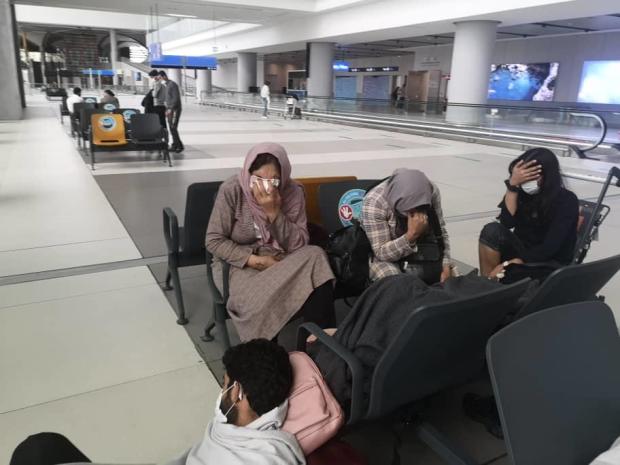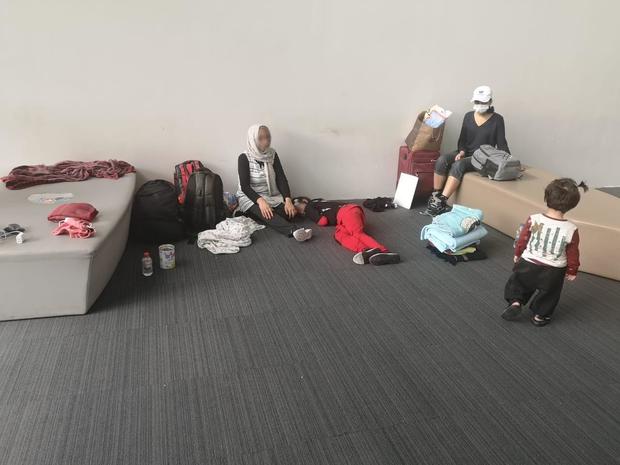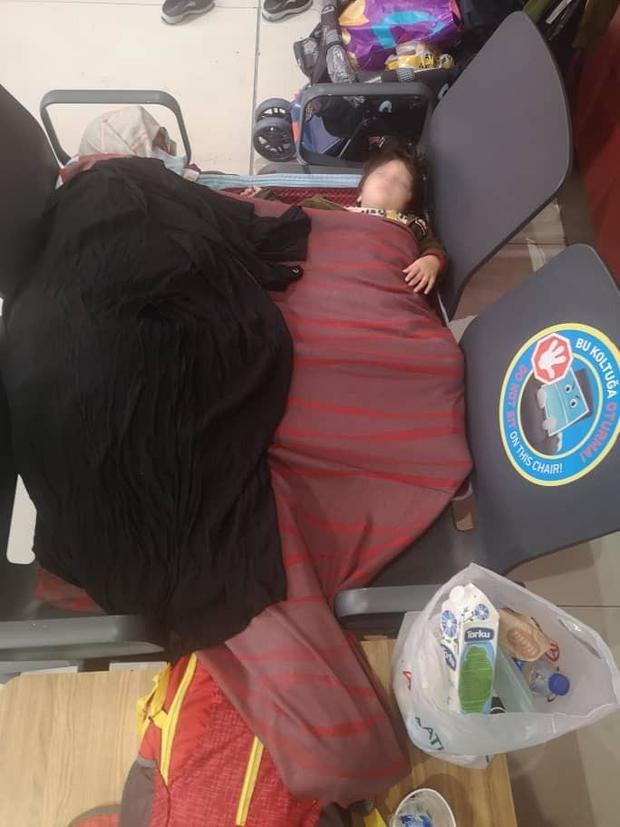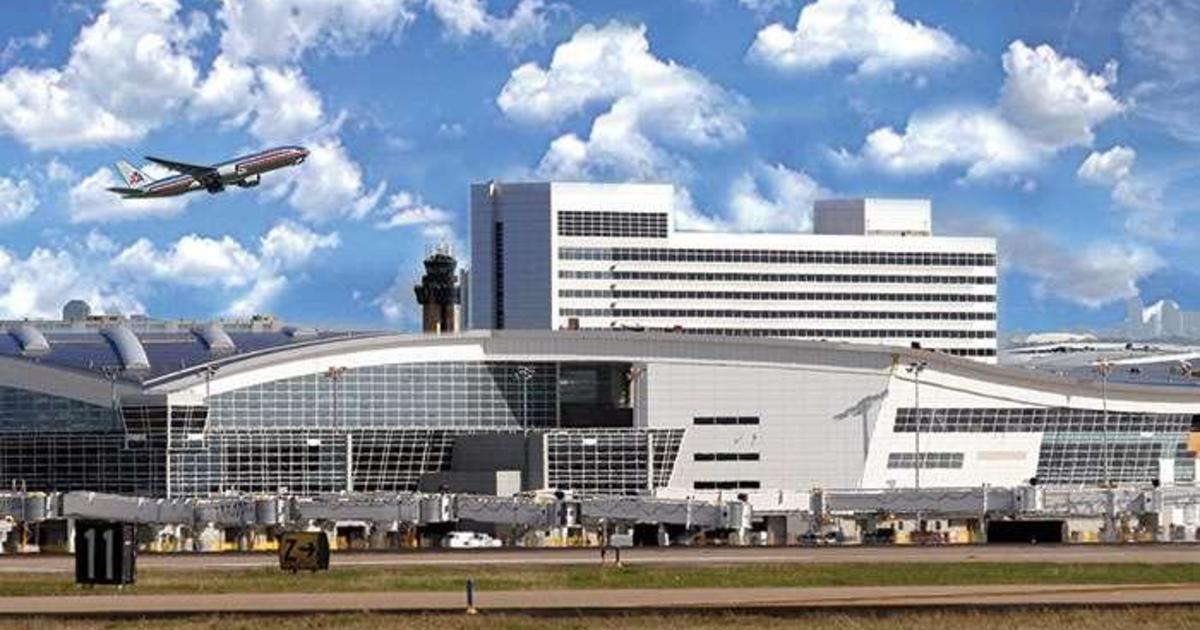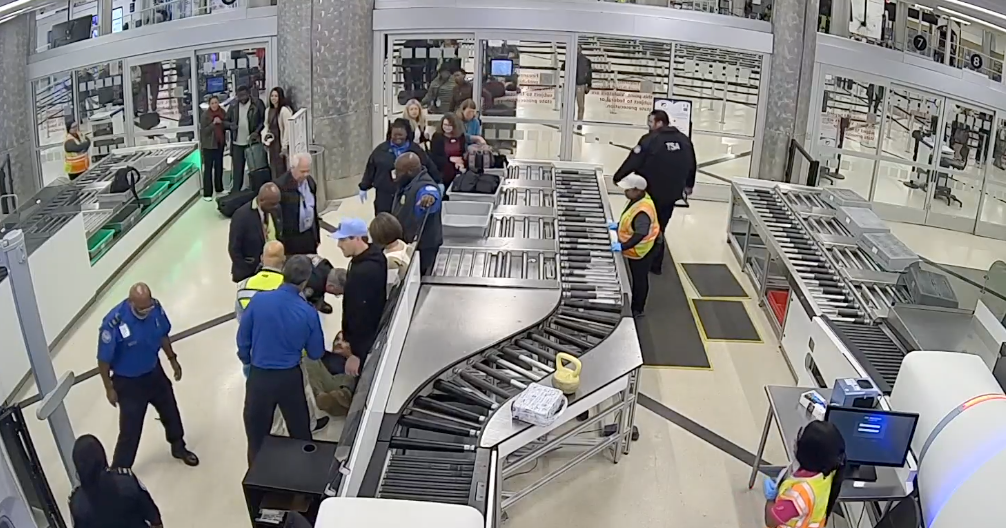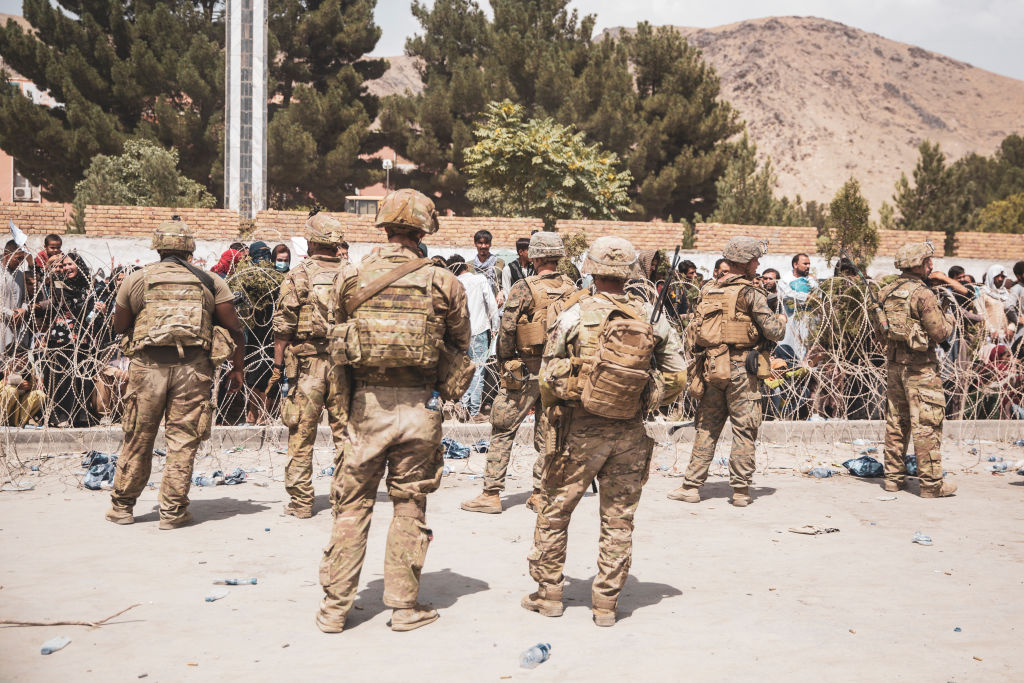Afghan family stranded at airport 3 weeks after desperate bid to escape Taliban "death sentence"
The U.S. has ended its 20-year war in Afghanistan, but American forces increasingly seem to have left the Taliban steamrolling their way back into a position of power. As the insurgents reclaim territory at an alarming rate, thousands of Afghans — fearing a complete military takeover by the Islamic fundamentalists — are clambering for ways to escape their country.
For the vast majority there's no way out, and even for those with the means, the path to refuge is far from clear. One family managed to get out of Afghanistan only to find themselves trapped at an airport with nowhere to go, and no offers of help.
Farshad, who only wanted to use his first name, has been stranded at the international airport in Istanbul, Turkey with 15 members of his family, including two children and seven women, since they fled Afghanistan on June 22. The decision to uproot the entire extended family was made easy after the Taliban murdered one of Farshad's relatives in the western city of Herat.
The family decided to sell their homes and buy tickets for a Euro 2020 soccer championship match in Russia. The plan was to get there and then claim asylum. But the family say they were blocked from boarding their connecting flight to Russia in Istanbul and threatened with deportation by Turkish border police and airline officials.
"Our boarding passes expired and we were not able to buy food. We hardly found milk for the 2-year-old child [and when we did] that made him sick," Farshad told CBS News on the phone from an immigration detention center at the airport.
Unable to continue their journey but refusing to be sent back home to risk life under an encroaching Taliban, the family was left stranded at the airport. They spent 16 days in the terminal before authorities moved them to the detention facility.
"We are 16 Afghans who are stuck at the airport for 17 days. We are living here without food, water or milk for our baby. We have a sick person, and nobody assisted us with treatment," one of the female family members said in a video shared with CBS News last week. "We escaped from Afghanistan due to the life-threatening situation with the Taliban. We were in danger and under threat of killing and death. We will not go back to Afghanistan, and we want protection."
In another video sent by the family, a young woman is seen laying on airport seats, clearly in discomfort. "She's in pain in the international airport of Turkey," a male relative says. "Nobody cares."
"She's in pain more than 10 days, and nobody is taking care of her, and we cannot do anything. We don't have access to medicine and medical care," another man says. It wasn't clear what the woman was suffering with, but she appeared to be struggling to breathe in the video. Another clip showed her struggling to walk down an airport hallway near the bathrooms, supported by an older family member.
By Wednesday CBS News could no longer reach the family, who had decided their best hope was to apply for asylum in Turkey, on the phone.
Farshad worked with the U.S. Agency for International Development from 2018 until he fled, and some of his family members worked with other foreign organizations that support women's rights and victims of the war — work which could put them at risk of Taliban retaliation.
At the detention center, the family was separated into two rooms — men in one and women in another — and they were kept apart for three days, Farshad told CBS News.
Since President Joe Biden announced plans for a full U.S. troop withdrawal from Afghanistan on May 1, Taliban militants have made significant gains, including in Herat province, where Farshad's family came from. Only about 650 American troops remain in the country, helping to secure the U.S. Embassy and the international airport in Kabul, but no longer engaging in the fight with the Taliban.
Afghan officials have painted a grim picture of the situation to CBS News. They say the country could descend into full-scale civil war if a political settlement isn't reached between the government and the militant group.
The Taliban have seized more key districts all over the country in recent weeks, and they've been surrounding provincial capitals, too. They took control of several border crossings with neighboring countries last week, including one in Herat. The Afghan border police manning that post fled across the frontier into Iran for protection as the militants advanced.
On Monday, Finland temporarily halted all deportations of Afghan refugees back to their home nation, citing the unstable situation in Afghanistan.
"For the time being, we do not make decisions that lead to a deportation to Afghanistan," Finnish immigration officials told the Reuters news agency. "We cannot say what the situation for a person returning to certain areas would be."
They decision was taken a day after the Afghan Ministry of Refugees and Repatriations issued a formal order for European nations to stop deporting Afghan nationals back to the country, citing the "escalation of violence by the terrorist group of Taliban in the country and the spread of the third wave of the COVID-19."
The ministry said it had consulted other Afghan government agencies and "does not consider the current situation in the country conducive for the forced return of Afghan migrants until the security situation improves," and was thus banning forced repatriations from Europe for at least three months.
The U.S. government is currently working to evacuate about 18,000 Afghan interpreters and others who helped the American war effort in the country, along with their family members, in a complex air-lift operation. The Biden administration has said it will also offer thousands of additional visas for Afghan women who may be targeted by the Taliban.
"We want the Turkish government to grant us international protection, either in Turkey or any other country except Afghanistan," Farshad said. "If they send us back to Afghanistan, it would be leaving sheep to hungry wolves — a death sentence."
Another family member, in the United States, sent CBS News a link to a statement by the Istanbul provincial government confirming the arrival of 16 Afghans on June 22. It said they had been denied onward travel to Russia for lack of Russian visas and that their applications "for international protection to our relevant departments" were being processed according to Turkish law.
The relative in the U.S. said all 16 members of the family had since been transferred to a separate detention camp, which "looks more like a jail for them," and that Turkish authorities had taken their personal belongings.
The Turkish Interior Ministry had not responded to CBS News' requests for comment on the Afghan family's bid for asylum, or their current circumstances or whereabouts, by the time of publication.
Farshad's family didn't want to be identified for fear that talking to the media could impact their bid for asylum in Turkey.
During a briefing for journalists in Geneva on Tuesday, the spokesman for the United Nations refugee agency warned of "a looming humanitarian crisis in Afghanistan" amid the escalating violence.
UNHCR spokesman Babar Baloch said about 270,000 Afghans had been forced to flee their homes, becoming internally displaced, since January alone, "primarily due to insecurity and violence – bringing the total uprooted population to over 3.5 million."
CBS News' Pinar Sevinclidir in Istanbul contributed to this report.



